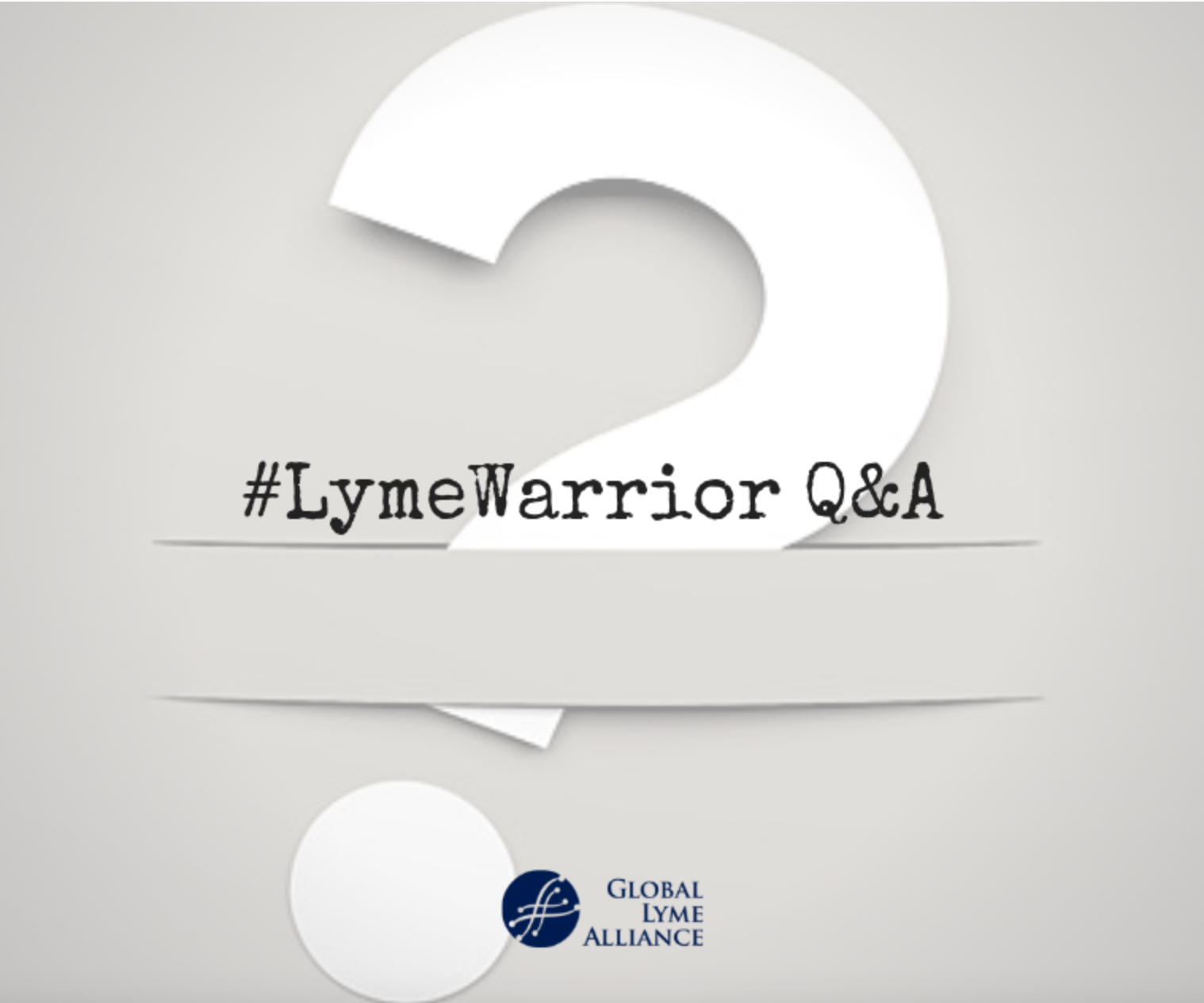
Every few months, Jennifer Crystal devotes a column to answering your questions. Do you have a question for Jennifer? If so, email her at lymewarriorjennifercrystal@gmail.com.
Is it helpful to pulse antibiotics?
Pulsing is a method of antibiotic administration where the patient takes the medication for a certain amount of time (for example, two weeks) and then stops it for a period (say, another two weeks), and then repeats the cycle. Some people have found great success with this method (Steven Phillips, MD talks about it in his new book Chronic: The Hidden Cause of the Autoimmune Pandemic and How to Get Healthy Again). He writes about patients who were on antibiotics all the time for years and only reached a certain level of wellness, but then felt completely better after switching to a pulsed regimen. Pulsing allows the body to detox, especially after intense Herxheimer reactions, and gives the gut a break, too.
That said, pulsing doesn’t work for everyone. Some feel that doing so allows the spirochetes to build up a stronger load during the off-period, making them harder to kill (and causing worse Herxheimer reactions) during the on-periods. My own body has difficulty adjusting to any kind of on-off regimen (for example, if I’m weaning off a medication, it never works for me to take it every other day; this just causes a jerking effect). For others, that method works just fine. The bottom line is that you need to speak with your Lyme Literate Medical Doctor (LLMD) to see if pulsing is the right choice for you, and you may need to do a little trial-and-error to find out.
I’ve been battling Lyme for four months and just started getting rashes and hives on my legs at random times. It seems it may coincide with something I ate. Did you have any trigger foods, and did you find anything to help rashes and hives long-term?
Lyme is an inflammatory disease. As I explain in my post “Stop the Itching! Lyme and Hives,” Lyme can cause an inflammatory response anywhere in the body, manifesting as redness, swelling, heat, pain, or loss of function. I started getting hives four years after getting a tick bite, but it would be another four years before I got accurately diagnosed and started treatment. Once I did get proper antibiotic treatment, the hives stopped.
Before then, itchiness and redness could sometimes be triggered by exercise. After a run, my legs might turn bright red and grow incredibly itchy. The reaction was never triggered by food, but one of two things may be going on for you. You may simply be having an allergic reaction to something you’re eating (try to find a common denominator in your meals, and see an allergist who can test for food allergies). Or, maybe you are eating an inflammatory food that is exacerbating the inflammation you’re already experiencing from Lyme. (See my post “The Lyme Diet” for information on inflammatory and anti-inflammatory foods). It helped me to switch to an anti-inflammatory diet, which I’ve been on for over a decade. What helped the most with my inflammation, though, was proper treatment with antibiotics and anti-inflammatory medication. If you are not already seeing a LLMD, I encourage you to find one who can address your systemic inflammation, check for co-infections, and help you consider dietary changes. (To find a good LLMD in your area, please click here).
Before sleep medication, can you describe your insomnia? Was it every night? For how long?
Once tick-borne illnesses crosses the blood-brain barrier, they can cause a host of neurological issues, including sleep disturbances. Before I was accurately diagnosed with and treated for Lyme disease, babesiosis, and ehrlichiosis, I had horrendous insomnia. At one point, I was literally awake for weeks. I tried everything: meditating, counting sheep, using lavender oil, taking over-the-counter sleep aids, but nothing worked. Despite my exhaustion, my brain would not turn off. I had word and song iteration—words and songs playing in my head like a mash-up, over and over again. It felt like my body was in park and my brain was in overdrive.
Some nights I did sleep, but it wasn’t restful. I experienced hallucinogenic nightmares that left me more tired when I woke up than when I went to sleep. Sleep disturbances went on for a couple years before I was accurately diagnosed, and persisted (with some improvements) for a few months during the start of treatment. These issues came back when I relapsed. The first step in getting them under control was to treat the infections that were causing it. I saw a sleep specialist who did neurofeedback, taught me good sleep hygiene, and figured out, through some trial-and-error, the best medication to help me sleep.
The above material is provided for information purposes only. The material (a) is not nor should be considered, or used as a substitute for, medical advice, diagnosis, or treatment, nor (b) does it necessarily represent endorsement by or an official position of Global Lyme Alliance, Inc. or any of its directors, officers, advisors or volunteers. Advice on the testing, treatment or care of an individual patient should be obtained through consultation with a physician who has examined that patient or is familiar with that patient’s medical history.

Jennifer Crystal
Writer
Opinions expressed by contributors are their own. Jennifer Crystal is a writer and educator in Boston. Her work has appeared in local and national publications including Harvard Health Publishing and The Boston Globe. As a GLA columnist for over six years, her work on GLA.org has received mention in publications such as The New Yorker, weatherchannel.com, CQ Researcher, and ProHealth.com. Jennifer is a patient advocate who has dealt with chronic illness, including Lyme and other tick-borne infections. Her memoir, One Tick Stopped the Clock, was published by Legacy Book Press in 2024. Ten percent of proceeds from the book will go to Global Lyme Alliance. Contact her via email below.